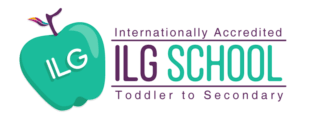
International Learning Group School (ILG School)
Menu
Home > Taking Action (Service Learning)
Primary Years Programme
Action, the core of student agency, is integral to the Primary Years Programme (PYP) learning process and to the programme’s overarching outcome of international-mindedness. Through taking individual and collective action, students come to understand the responsibilities associated with being internationally minded and to appreciate the benefits of working with others for a shared purpose. When students see tangible actions that they can choose to take to make a difference, they see themselves as competent, capable and active agents of change (Oxfam 2015).
Students taking action in response to their inquiries lays a foundation for community service in the Middle Years Programme (MYP) and creativity, activity, service (CAS) in the Diploma Programme (DP). Action is a means for students to show that they have linked their learning to real-life issues and opportunities, and that they are developing responsible dispositions and behaviours towards social and physical environments and to the community within and beyond school. Through action, students develop a sense of belonging to local and global communities. They understand and recognize the interconnectedness and interdependence of issues, and consider these from multiple perspectives (Oxfam 2015, UNESCO 2015).
Initiated by students, PYP action is authentic, meaningful, mindful, responsible and responsive. Action could be:
Students exercise agency by making responsible choices; these choices can sometimes include conscious decisions not to act. It may be that students take time to research and reflect upon possible courses of action and decide against taking action because of the connected consequences and potential impact on others (Boix Mansilla, Jackson 2011).
PYP learning communities engage students individually and collectively with local and global challenges and opportunities through action (UNESCO 2015). All members of the learning community contribute to an open and dynamic environment for engaging with the world. Students feel encouraged to take action as a response to past and present inquiries. They are autonomous in taking action and are confident that their actions will be appreciated and supported (Hart 1992; Nimmo 2008).
Middle Years Programme
Schools offering the MYP offer students the opportunity to engage in both the community project and the personal project. The community project and the personal project are known together as MYP projects.
The community project focuses on community and service, encouraging students to explore their right and responsibility to implement service as action in the community. The community project gives students an opportunity to develop awareness of needs in various communities and address those needs through service learning. As a consolidation of learning, the community project engages in a sustained, in- depth inquiry leading to service as action in the community. The community project may be completed individually or by groups of a maximum of three students.
The personal project encourages students to practise and strengthen their approaches to learning (ATL) skills, to consolidate prior and subject-specific learning, and to develop an area of personal interest. The personal project provides an excellent opportunity for students to produce a truly personal and often creative product/outcome and to demonstrate a consolidation of their learning in the MYP. The project offers many opportunities for differentiation of learning and expression according to students’ individual needs. The personal nature of the project is important; the project should revolve around a challenge that motivates and interests the individual student. Each student develops a personal project independently.
MYP projects are student-centred and age-appropriate, and they enable students to engage in practical explorations through a cycle of inquiry, action and reflection. MYP projects help students to develop the attributes of the IB learner profile; provide students with an essential opportunity to demonstrate ATL skills developed through the MYP; and foster the development of independent, lifelong learners.


The ILG School Summer Camp is back! Join us from Monday, 26 June, through Friday, 28 July, from 08:30-15:00. Registration is open to current students, new students, and children that do not attend ILG School from ages 2-16. (Early Years 1 – Grade 11 for the 2023-2024 school year.) We look forward to welcoming you for a summer of fun!